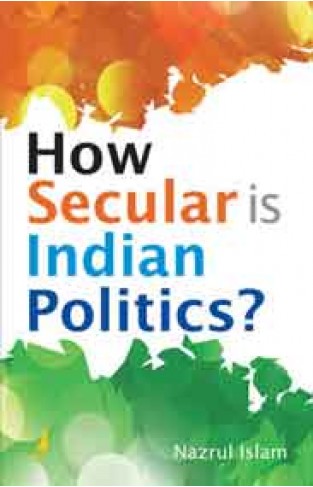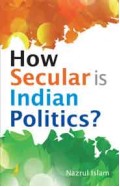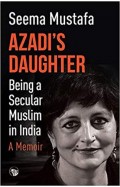How Secular is Indian Politics?
By: Nazrul Islam
-
Rs 3,820.75
- Rs 4,495.00
- 15%
You save Rs 674.25.
Due to constant currency fluctuation, prices are subject to change with or without notice.
| Book | |
| What's in the Box? | 1 x How Secular is Indian Politics? |
Zubin Mehta: A Musical Journey (An Authorized Biography)
By: VOID - Bakhtiar K. Dadabhoy
Rs 892.50 Rs 1,050.00 Ex Tax :Rs 892.50
The Origins of Political Order From Prehuman Times to the French RevolutioN
By: Francis Fukuyama
Rs 4,045.50 Rs 4,495.00 Ex Tax :Rs 4,045.50
Reset: How This Crisis Can Restore Our Values and Renew America
By: Kurt Andersen
Rs 450.00 Rs 500.00 Ex Tax :Rs 450.00
How To Win A Cosmic War God Globalization And The End Of War
By: Reza Aslan
Rs 625.50 Rs 695.00 Ex Tax :Rs 625.50
Game Change Obama And The Clintons McCain And Palin And The Race Of A Lifetime
By: John Heilemann
Rs 715.50 Rs 795.00 Ex Tax :Rs 715.50
Made to Stick: Why Some Ideas Take Hold and Others Come Unstuck
By: Chip Heath & Dan Heath
Rs 2,695.50 Rs 2,995.00 Ex Tax :Rs 2,695.50
No similar books from this author available at the moment.
3S Translation of the Holy Quran (between the lines with short footnotes)
By: Idara Tarjuman ul Quran
Rs 3,595.50 Rs 3,995.00 Ex Tax :Rs 3,595.50
Prophetic Etiquettes for All aspects of Life
By: Hazart Mufti Abu Bakr Ibn Mustafa Patni
Rs 2,000.00 Ex Tax :Rs 2,000.00
Azadi’s Daughter, A Memoir: Being a Secular Muslim in India
By: Seema Mustafa
Rs 1,346.25 Rs 1,795.00 Ex Tax :Rs 1,346.25
Zubin Mehta: A Musical Journey (An Authorized Biography)
By: VOID - Bakhtiar K. Dadabhoy
Rs 892.50 Rs 1,050.00 Ex Tax :Rs 892.50















-120x187.jpg?q6)





-120x187.jpg?q6)











